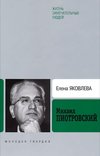
-
 Anglický jazyk
Anglický jazyk
Ethnic groups in Guinea
Autor: Source: Wikipedia
Source: Wikipedia. Pages: 25. Chapters: Fula, Mandinka, Fula people, Mandinka people, Mende people, Dyula people, Pre-Imperial Mali, Wodaabe, Susu people, Yalunka people, Fula people of Sierra Leone, Mandinka language, Toucouleur people, Loma people, Bassari... Viac o knihe
Na objednávku, dodanie 2-4 týždne
13.68 €
bežná cena: 15.20 €
O knihe
Source: Wikipedia. Pages: 25. Chapters: Fula, Mandinka, Fula people, Mandinka people, Mende people, Dyula people, Pre-Imperial Mali, Wodaabe, Susu people, Yalunka people, Fula people of Sierra Leone, Mandinka language, Toucouleur people, Loma people, Bassari people, Sosso Empire, Diallo, Jallow, Karamogo, Gbandi, Halpulaar. Excerpt: The Mandinka, Malinke (also known as Mandinko) are one of the largest ethnic groups in West Africa with an estimated population of eleven million. They are the descendants of the Mali Empire, which rose to power under the rule of the great Mandinka king Sundiata Keita. The Mandinka in turn belong to West Africa's largest ethnolinguistic group, the Mandé, who account for more than twenty million people (including the Dyula, Bozo, Bissa and Bambara). Today, over 99% of Mandinka in Africa are Muslim. The Mandinka live primarily in West Africa, particularly in The Gambia, Guinea, Mali, Sierra Leone, Cote d'Ivoire, Senegal, Burkina Faso, Liberia, Guinea Bissau, Niger, Mauritania and even small communities in the central African nation of Chad. Although widespread, the Mandinka do not form the largest ethnic group in any of the countries in which they live except The Gambia. Most Mandinkas live in family-related compounds in traditional rural villages. Mandinka villages are fairly autonomous and self-ruled, being led by a chief and group of elders. Mandinkas live in an oral society. Learning is traditionally done through stories, songs and proverbs. Western education's impact is minimal; the literacy rate in Latin script overall among the Mandinka is quite low. However, more than half the adult population can read the local Arabic script; small Qur'anic schools for children where Arabic is taught are more common. Originally from Mali, the Mandinka gained their independence from previous empires in the thirteenth century, and founded an empire which stretched across West Africa. They migrated west from the Niger River in search of better agricultural lands and more opportunities for conquest. Through a series of conflicts, primarily with the Fula-led Kingdom of Fouta Djallon, about half of the Mandinka population converted from indigenous beliefs to Islam. During the 16th, 17th and 18th century as many as a third of the Mandinka population were shipped to the Americas as s
- Vydavateľstvo: Books LLC, Reference Series
- Rok vydania: 2018
- Formát: Paperback
- Rozmer: 246 x 189 mm
- Jazyk: Anglický jazyk
- ISBN: 9781156124727




 Ruský jazyk
Ruský jazyk 








 Francúzsky jazyk
Francúzsky jazyk